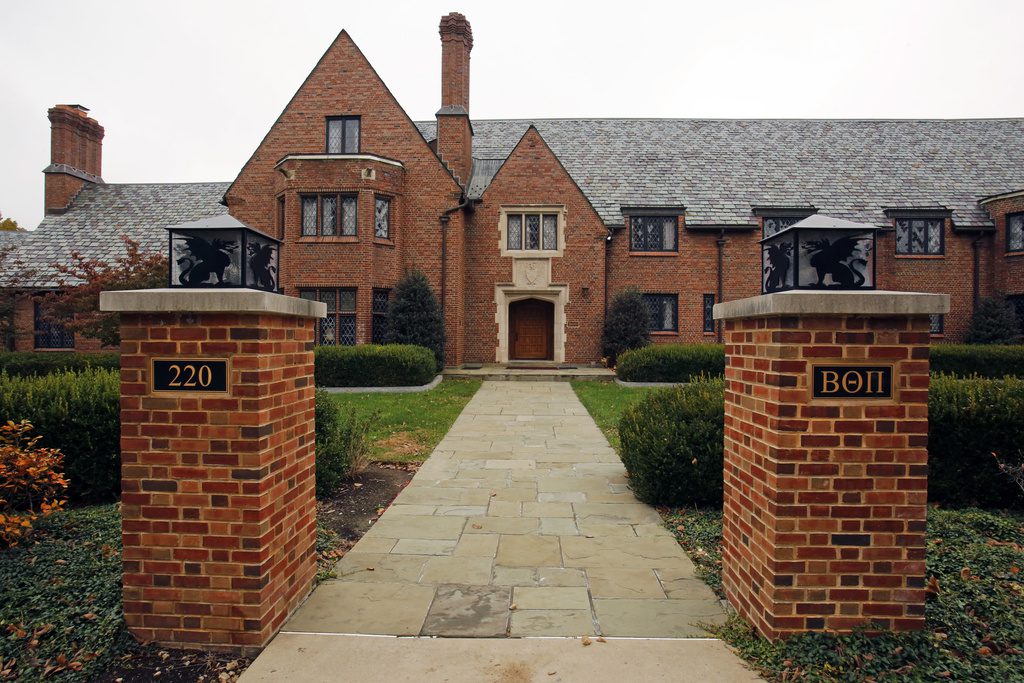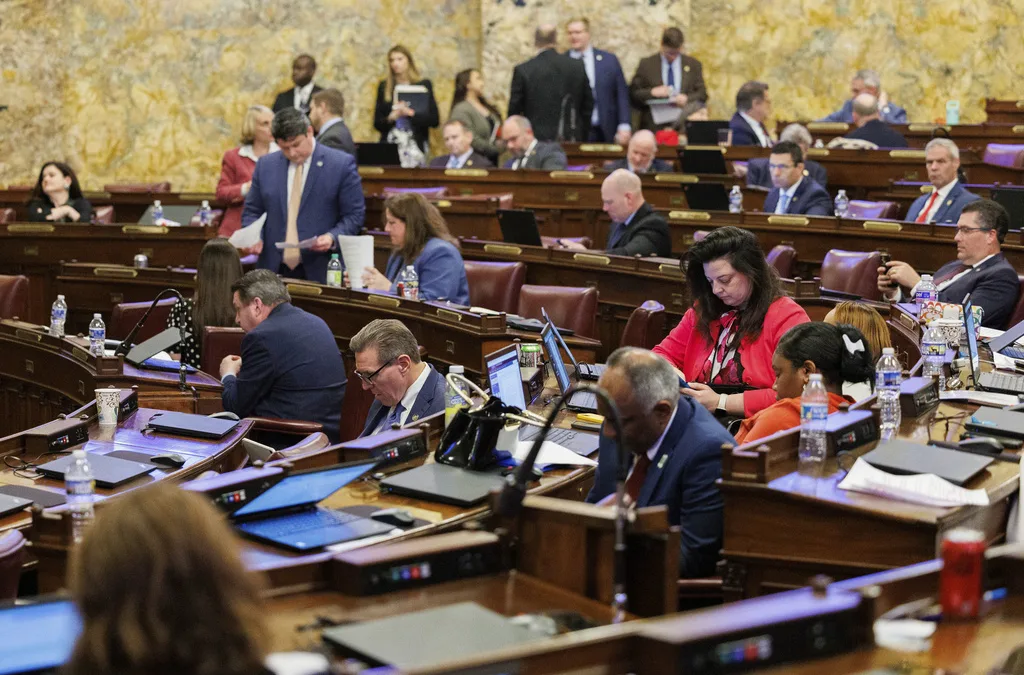
FILE - Beta Theta Pi fraternity house on the Penn State University main campus in State College, Pa., on Nov. 9, 2017. The former president and vice president the fraternity where pledge Timothy Piazza fell and later died after consuming a large amount of alcohol pleaded guilty to misdemeanors Tuesday, July 30, 2024. (AP Photo/Gene J. Puskar, File)
Brendan Young, who was president of the now-defunct chapter of Beta Theta Pi, and Daniel Casey, who was vice president and pledge master, were sentenced to two to four months behind bars over the 2017 death of Piazza, a 19-year-old engineering student from New Jersey.
The former president and vice president of a Penn State fraternity where pledge Timothy Piazza fell and later died after consuming a large amount of alcohol received jail sentences Tuesday.
Brendan Young, 28, who was president of the now-defunct chapter of Beta Theta Pi in 2017, and Daniel Casey, 27, who was vice president and pledge master, were sentenced in Centre County Court to two to four months behind bars, followed by three years of probation and community service. Each will be eligible for work release.
Young and Casey both pleaded guilty in July to 14 counts of hazing and a single count of reckless endangerment, all misdemeanors. They were the last two criminal defendants to be sentenced in a case that prompted Pennsylvania lawmakers to crack down on hazing.
They were ordered to report to the Centre County Correctional Facility on Monday.
“Our thoughts are with the Piazza family and everyone affected by this tragedy,” Attorney General Michelle Henry said in a statement. “Nothing can undo the harm Tim suffered seven years ago — nothing can bring Tim back to his family and friends.”
Messages seeking comment were left with Young’s defense lawyer, Julian Allatt, and Casey’s lawyer, Steven Trialonis.
Piazza, a 19-year-old engineering student from Lebanon, New Jersey, and 13 other pledges were seeking to join the fraternity the night Piazza consumed at least 18 drinks in less than two hours. Security camera footage documented Piazza’s excruciating final hours, including a fall down the basement steps that required others to carry him back upstairs. He exhibited signs of severe pain as he spent the night on a first-floor couch.
It took hours for help to be called. Piazza suffered severe head and abdominal injuries and died at a hospital.
More than two dozen fraternity members faced a variety of charges at one point. More than a dozen pleaded guilty to hazing and alcohol violations, while a smaller number entered a diversion program designed for first-time, nonviolent offenders.
Prosecutors were unable to get more serious charges — including involuntary manslaughter and aggravated assault — approved by judges.
Penn State banned the fraternity. Pennsylvania state lawmakers passed legislation making the most severe forms of hazing a felony, requiring schools to maintain policies to combat hazing and allowing the confiscation of fraternity houses where hazing has occurred.
Had that statute been in place at the time of Piazza’s death, the defendants would have faced stiffer penalties, according to the attorney general’s office.

Shapiro administration distributes $120 million for school safety and mental health support
The funding will help public and private schools across the commonwealth to provide security personnel, equipment upgrades and mental health support...

Trump nominates former WWE head, private school voucher advocate for Education secretary
McMahon is relatively unknown in education circles, although she has expressed support for charter schools and private school vouchers. The...

‘A stunning public rebuke’: When voters had the choice, they rejected private school vouchers
On Election Day, voters in Colorado, Kentucky, and Nebraska squarely rejected private school choice ballot measures, demonstrating how much voters...

PA House Democrats promise to double down on public education support following election victory
PA House Democrats are looking forward to continuing to make investments in public education following their electoral wins last week. Last year,...

Army returns remains of 9 Indigenous children who died at Carlisle boarding school over a century ago
The remains of nine more Native American children who died at a notorious government-run boarding school in Carlisle over a century ago were...




